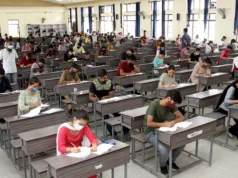The Joint Parliamentary Committee (JPC) has approved the Wakf Amendment Bill with 14 key changes, including three significant revisions that were demanded by the Muslim community. The bill is set to be presented in Parliament during the budget session, and once passed, it will become law.
JPC Chairman Jagdambika Pal stated that the committee reviewed 572 suggested amendments, out of which 44 were debated, and 14 were ultimately approved based on majority votes. Despite opposition objections, all opposition amendments were rejected by a 16-10 vote. Pal emphasized that these changes aim to benefit Wakf institutions and serve the public interest.
Three Major Changes in the Wakf Amendment Bill
- Authority to Decide Wakf Property
Initially, the bill proposed that the District Collector would determine whether a property is Wakf or not. However, the JPC has amended this, granting the authority instead to an officer nominated by the state government. This change was proposed by opposition parties. - Representation of Non-Muslim Members
The bill originally required at least two non-Muslim members in the State Wakf Boards and Central Wakf Council. Following demands from the Muslim community, this provision was amended. Now, while two nominated members are mandatory, they will no longer be required to be non-Muslims. - Non-Retrospective Application
The Muslim community requested that the new law not apply retrospectively. The JPC accepted this demand, ensuring that the law will not impact decisions made on previously resolved cases. However, it will apply to unregistered Wakf properties, which, according to Congress MP Imran Masood, account for 90% of such properties.
Opposition’s Concerns
Following the JPC meeting, opposition members expressed strong dissatisfaction.
- TMC MP Kalyan Banerjee accused the JPC of ignoring parliamentary procedures, stating that the opposition was not allowed to fully participate in discussions. He described the process as rushed and undemocratic, calling it a “black day for democracy.”
- Congress MP Imran Masood criticized the bill, claiming it was a move to seize Wakf properties and create societal divisions. He questioned the urgency of passing the bill, suggesting it could have been tabled on April 4, the last day of the session.
Why the Opposition is Angry
The opposition believes that parliamentary traditions were bypassed during the process and that their voices were silenced. They argue that the bill appears to target Wakf properties and could lead to polarization within the country. The lack of adequate time for deliberation has also fueled their concerns.
With the Wakf Amendment Bill heading to Parliament, the debate over its provisions is expected to intensify further.










